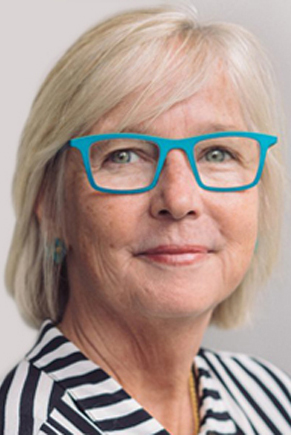Gooding: Why awards should matter and how to ensure they do matter

Opinion
Judging any awards is an opportunity to learn and rediscover why great work matters.
Over the last few months, I have been involved in judging a number of industry Awards. Designed to recognise and celebrate the most outstanding work, as well as the people and organisations who consistently produce it, they have become a kind of industry in themselves. I have always regarded it as a privilege and honour to be invited to judge.
But, honestly, when the papers arrive my heart sinks and I wonder why I ever signed up for it. Judging is hard work. When you know you are going to have to score 18 papers and keep notes so you can explain your thinking to the other judges, it’s a daunting task.
Evaluation of work raises standards
I was lucky enough to be schooled on how to write awards papers by John Bartle when I was at BT. We ran our own internal awards process making use of proprietary data we would not want to share externally as part of an approach to improving the standards of BT’s own marketing.
Our hope was that learning to write an excellent case study would just flow naturally into more effortless business-as-usual reporting on marketing to BT senior management. We would never again scrabble around, as had too often been the case in the past, to explain the logic of our argument and strategy or the data to demonstrate effectiveness because we had learned how to set objectives and monitor results.
That was the ultimate prize. To draw attention to our best work and recognise the people involved was of secondary importance.
Identifying cause and effect is difficult
In reality, it can be very difficult to isolate the contribution of an individual, a creative idea, or media plan when it is part of a complex ecosystem of business delivery. I remember standing in the women’s dress department in Selfridges as a graduate trainee when a woman came up to me clutching an ad which she had torn out of the Evening Standard.
“I have come to try on this dress please, in a 12”, she said to me.
I looked at the ad. I didn’t recognise the dress. I didn’t even know Selfridges was advertising women’s fashion that week.
So, I asked my manager where I could find it? She groaned and said: “the stock hasn’t arrived yet; you’ll have to apologise and ask her if she minds coming back next week when it should be in.”
You can imagine how that went down with the customer.
Rigorous analysis is fundamental
As it happens it was a very dull ad and looking back at it, I am surprised the woman noticed it at all. Nevertheless, the right dress, at the right price, on the right day, had appeared in her newspaper and motivated her to come and try it on.
The advertising had been effective, but the marketing had not. The effort of everyone involved in producing that ad had failed to result in a sale because of a problem in both distribution and internal communication.
I have no idea whether the Selfridges marketing managers knew whether the dress was in stock. Or whether they thought it was even their responsibility to check. However, I am clear in my mind that running the ad was a waste of money.
We can’t learn if we are not truthful
The fact that I am writing about it 40 years later shows that this incident made a big impression on me. I couldn’t believe the mismanagement.
That Selfridges would advertise something in the Evening Standard that they didn’t actually have in the store. Nor tell their staff that they were running such a campaign.
Looking back on it, I wonder if anyone was honest enough to report what really happened, or whether it was logged as ‘a dull ad that didn’t work’. Or perhaps the conclusion drawn was that placing the ad in the Evening Standard was a poor decision?
It taught me how difficult it can be to demonstrate that intervention ‘A’ caused outcome ‘B’ when there are so many variables at play and execution is everything.
Involving diverse minds in the adjudication
You need multiple judges who are practitioners able to recognise the art as well as the science of our work to ensure fair play. You need people who can evaluate the likelihood of a particular activity having the results claimed and would be proud to have put their own name against the work.
It is true that clients generally value results more than creativity and are drawn to work that has immediate impact, with multiple touchpoints and the potential for scale. Marketing services practitioners tend to admire focus, originality and work that is likely to be talked about and lead to fame. Both are valuable perspectives.
The power of achieving consensus
Compared to the experience of pondering over the entries in isolation, coming together with your fellow judges to compare notes is fascinating.
The first time I ever judged I was concerned that I might have such a radically different view to the other judges we wouldn’t be able to reach agreement. I quickly realised that whilst the first rule of judging is to have a point of view that you can stand behind, perhaps the second is to be prepared to change your mind.
Even though we have been given criteria and scoring sheets I now trust that the winner will emerge through dialogue and debate and not simply who got the highest number of points.
Scores are a tool, not a decision-maker
I always ask my fellow judges to share who their first, second and third choices are as a starting point because I have never known all the judges to have an identical selection and ranking. It’s a great way to get a first impression of our starting point.
 Jan Gooding
Jan GoodingJudges may have settled on the same three cases as the best, but in a different order, or someone may put in first position an entry which none of the other judges have even placed in their top three.
This is my favourite part of the whole process, and the crux of the matter for those who have worked hard and taken the trouble to enter. We are tasked to thrashing out our differences of opinion until we can declare a winner.
The return on investment is high
To listen to what led each judge to give the scores they did, to have new light shed on cases you hadn’t appreciated, to explain your own thinking and then to create a consensus is a demanding and immensely rewarding experience. I always find it inspiring to hear practitioners I admire, praising and dissecting the work of their competitors with intellectual rigour and generosity.
Judging any awards is an opportunity to learn. To read about work you would not otherwise see. To discuss a range of case studies with other practitioners and hear what they admired in them. To advocate for your own judgement and test your thinking against your peers. To discover again that our work matters and makes a difference to people and brands.
For the judges it is not about the winning, but the taking part that makes the experience so worthwhile.
Jan Gooding is one of the UK’s best-known brand marketers, having worked with Aviva, BT, British Gas, Diageo and Unilever. She is now an executive coach, chair of PAMCo and Given. She writes for The Media Leader each month.
Big Picture: The Media Leader‘s weekly bulletin with thought leadership and analysis by the industry’s best writers and analysts.
Sign up for free to ensure you stay up to date every Wednesday.



